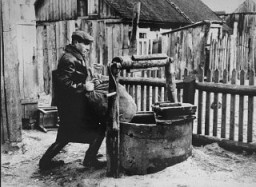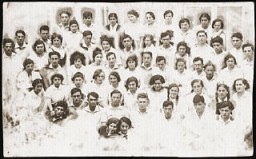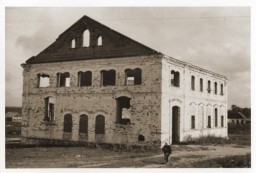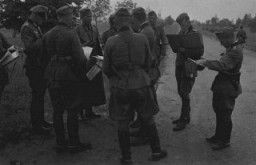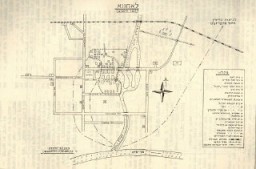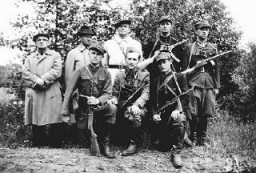Debate within the Lokacze Ghetto
Read a first-hand account of the difficult debates that took place about resistance within the ghettos.
A Project of the Miles Lerman Center
Contrary to the often-stated view of Jews as unwitting and therefore largely helpless victims, by mid-1942, most ghetto inmates had a strong sense of foreboding about what was to come. The liquidation of the ghettos in the occupied Soviet Union during the “second wave” in the summer and fall of 1942 was sudden and violent, but not unexpected. Resistance most commonly consisted of silent escapes or the attempt to hide behind false walls or in concealed bunkers. An example of the difficult debates that took place within the ghettos can be found in a rare ghetto diary of Lokacze prepared by Michael Diment.
From Michael Diment, The Lone Survivor: A Diary of the Lukacze Ghetto and Svyniukhy, Ukraine (New York: Holocaust Library, 1992), pp. 121-22.
It was 4 pm already when all the young people were summoned by Moniek Lotringer and Moshe Kolier to gather in the large warehouse of Moshe Kolier. We assembled quickly. The warehouse was full. Moniek opened the meeting. Talking in Polish, he said, "All of you know the situation; how sad it is, so I won't repeat it. In a little while we will all be buried in mass graves, only because we are Jews. Dear brothers and sisters, now we must fight for our lives and revenge our fatal plight at every opportunity. In short, we have to think about what we must do. If we only were in the woods and fields. The enemy knew how to take advantage of us, so we would be forced to fight among ourselves. We all harbored antagonisms against each other, a most useful person or anyone else, and we could not reach an understanding. Now we share the same destiny. We have to destroy our enemy right here and now. We will unify our strength and not attempt to anticipate every action of our foe; our experience has taught us that we cannot predict what they will do. They have already confiscated everything that might be useful to us, from the smallest tool like an ax, a pick or an iron bar; everything was seized, and we didn't anticipate that. When the killers arrive, we should not panic, but attack the enemy, with our bare hands if necessary."
Afterwards Moshe Kolier spoke, "I would like to express my opinion. We have to consider the consequences of a struggle with no weapons. If we only had iron bars or axes with which to kill the militia. With their machine guns, they will slaughter all of us. I believe we should organize into small groups and try to escape from the ghetto. Planning to escape in larger numbers at one time could be disastrous. If we are lucky and succeed, we should meet in the Saduwer forest. These woods are connected to the others and could take us to safer areas. There we can assemble a few hundred Jews and decide what to do. Those who wish to remain in the ghetto should remember that they are responsible for burning everything, including houses and the clothes on their backs."
Series: Resistance in the Smaller Ghettos of Eastern Europe
Critical Thinking Questions
- What pressures and motivations may have affected the thinking of the disagreeing fighters?
- Investigate other examples of resistance within the ghettos of Eastern Europe. How were their situations the same? How were they different?
